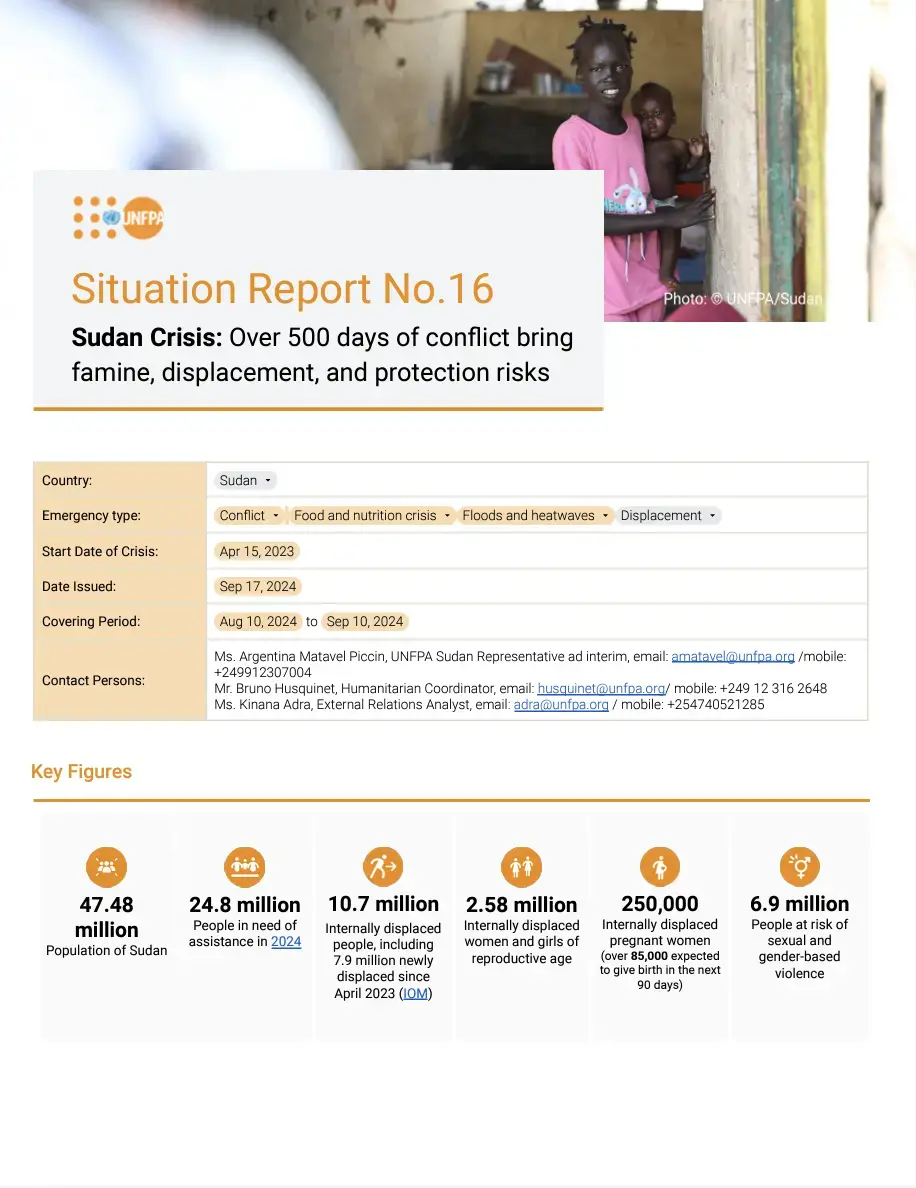Over 500 days of conflict in Sudan have triggered the world’s largest crisis in hunger, protection, and displacement, severely affecting women, children, and marginalised groups. Famine conditions have been confirmed in Zamzam IDP camp near Al Fasher, North Darfur, while over half of the population faces Crisis (IPC 3) or worse. This has intensified the urgent demand for reproductive health, maternal care, and gender-based violence (GBV) services, as women and girls in famine-affected areas face increased vulnerabilities. Heavy rains, flooding, and disease outbreaks, including cholera, have further compounded the crisis, particularly for pregnant women and those at risk of GBV, heightening the need for safe spaces, dignity kits, and essential reproductive health services.
UNFPA’s response has focused on delivering critical sexual and reproductive health (SRH) and gender-based violence (GBV) services across conflict-affected regions in Sudan. This includes distributing life-saving SRH supplies and equipment to multiple areas, deploying mobile health teams, and providing emergency obstetric care to vulnerable populations. UNFPA also leads the implementation of the Minimum Initial Service Package (MISP) for SRH, supports healthcare facilities through rehabilitation and solar installations, and has facilitated training for healthcare providers to ensure continued service delivery. In terms of GBV response, UNFPA has supported women and girls through the distribution of dignity kits, establishment of safe spaces, and community-based protection networks. UNFPA has also focused on capacity building, vocational training for women and girls, and disability inclusion in GBV programming, while raising awareness on GBV prevention, protection from sexual exploitation, and abuse.
In 2024, UNFPA Sudan is appealing for $127.5 million to respond to the SRH and GBV needs of those most impacted by this crisis, including refugees in Sudan. To date, only 21% of this funding has been pledged.


